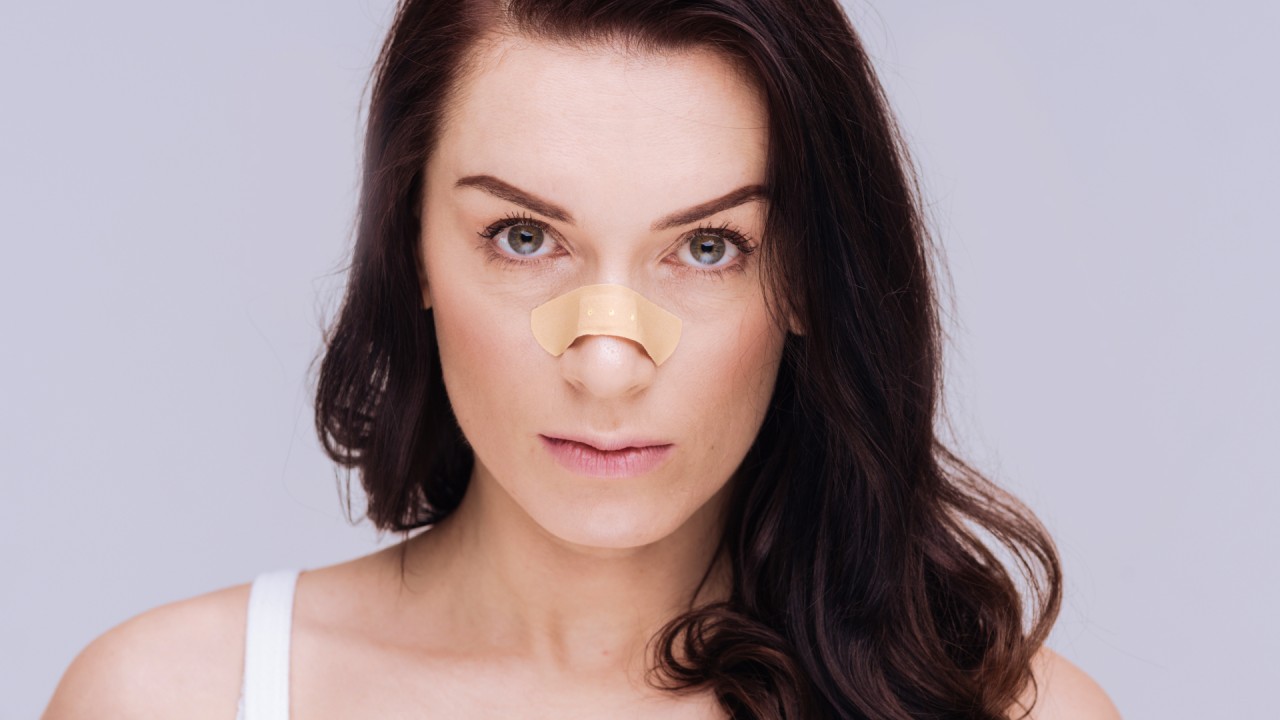5 Reasons Not to Get a Rhinoplasty
5 reasons not to get a rhinoplasty!

Rhinoplasty is one of the most sought-after plastic surgeries, helping to improve the shape of the nose, restore normal breathing, and boost self-esteem. However, before deciding to take such a step, it is important to understand when rhinoplasty should not be performed. Studying the main contraindications will protect you from unwanted consequences and help you make an informed decision.
Below, we will consider 5 situations in which the surgery is either strictly prohibited or requires temporary postponement.

1.Chronic ENT diseases in the acute phase
If you have chronic diseases of the nasopharynx (sinusitis, sinusitis, rhinitis) in the acute phase, surgeons recommend postponing the surgery. The exacerbation of such pathologies often leads to complications after surgical intervention and significantly increases the risks. Additionally, the presence of inflammation in the nasal cavity impairs tissue healing.
Why it's better to postpone:
• High probability of postoperative complications: swelling, infections, unstable results.
• Difficulties with medication intake: antibiotics and anti-inflammatory drugs can distort the overall blood test results.
What to do: undergo treatment with an ENT doctor, wait for a stable remission, and then return to the question of rhinoplasty.

2.Age before the final formation of the face
Although the desire to change the shape of the nose may arise during adolescence, contraindications for rhinoplasty include being too young. Before the age of 18-20, the bones and cartilage of the face are still in the active growth phase. Surgery during this period can lead not only to an unpredictable final result but also to disruption of the natural development of nasal structures.
Why it's better to postpone:
• The unformed bony-cartilaginous framework of the nose.
• The likelihood that the shape of the nose will change naturally as the face continues to grow.
What to do: Wait until the facial skeleton is fully formed, and if there is significant discomfort, consult a psychologist and an ENT doctor to find temporary ways to correct breathing or appearance.

3.Pregnancy and lactation period
When discussing when rhinoplasty should not be performed, many specialists mention pregnancy and breastfeeding. During this period, a woman's body undergoes hormonal changes, sensitivity to pain medications increases, and blood test results may be unstable. This complicates the prediction of the surgery's outcome and increases the risks associated with rhinoplasty.
Why it's better to postpone:
• Difficulties with the use of anesthesia and medications to avoid harming the child.
• More pronounced swelling and changes in water balance.
What to do: Wait until the end of the lactation period, recover from pregnancy, and only then plan the surgery.

4.Unfavorable blood test results
Before any surgical intervention, the patient undergoes laboratory diagnostics. If blood tests indicate abnormalities (such as poor clotting, low hemoglobin levels, or signs of infection), the surgery may be postponed. Any deviations in the test results increase both surgical and postoperative risks, including life-threatening complications.
Why it's better to postpone:
• High probability of bleeding.
• Risk of complications with a weakened immune system.
What to do: Undergo additional examinations, determine the cause of the poor test results, and bring the indicators back to normal (if necessary, seek treatment from a specialist).

5.Any acute infections and ARVI (Acute Respiratory Viral Infection)
Even if you have a common cold or a "flu," doctors recommend that you fully recover first. Any viral or bacterial infection weakens the body and can affect the outcome of the surgery. Moreover, the surgeon will likely not want to risk your health: administering anesthesia during respiratory illnesses creates additional stress on the cardiovascular and respiratory systems.
Why it's better to postpone:
• Increased risk of respiratory complications.
• Higher likelihood of a more severe reaction to anesthesia.
What to do: Complete a course of treatment, ensure full recovery based on test results and a physical examination by a therapist.

Conclusion: Safety first
Understanding when rhinoplasty should not be performed helps avoid a multitude of problems—from worsening health to unsatisfactory aesthetic results.
If you are just starting to consider such a surgery or are already looking for a clinic, it is important to be confident in every step—from choosing a doctor to postoperative recovery. Often, it is the help of professionals that allows you to avoid unnecessary worries and consider all the nuances that are important to know before starting treatment.
We understand how difficult it can be to take the first step and navigate the numerous clinic options and approaches. Therefore, our specialists are ready to tell you where rhinoplasty is performed with the highest standards, help organize a consultation with leading doctors, and ensure that you feel confident and calm at every stage of the process.
If you have any questions, contact us via the link https://alisahealthgroup.com —sometimes even a short conversation can clarify complex issues. After all, health is not something to risk, especially when you can choose the best option that suits you.

